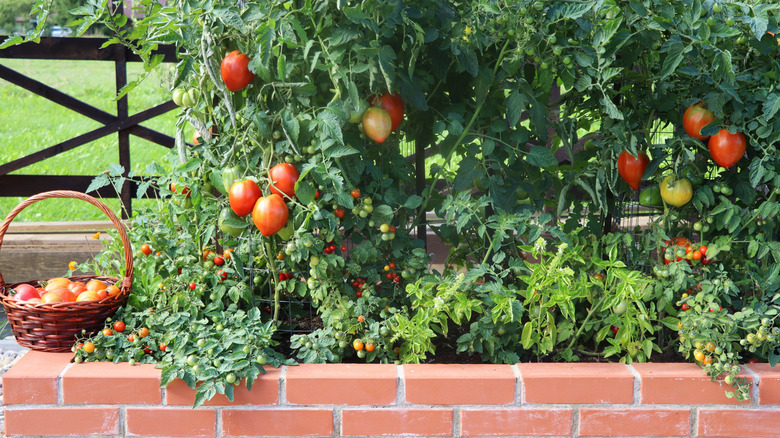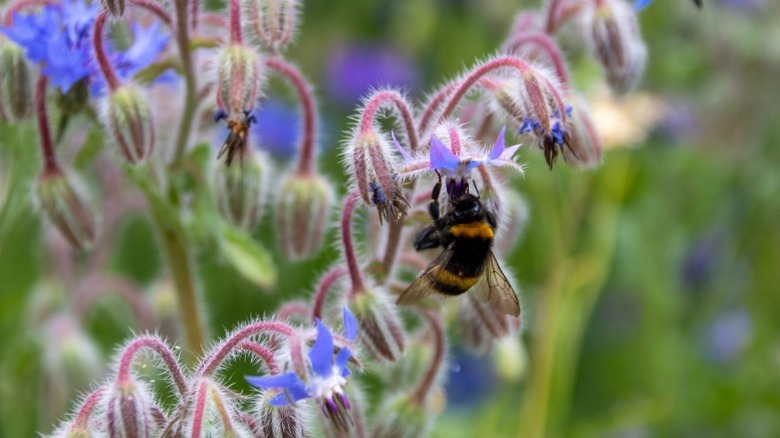The Pollinator-Magnet Herb That Tomatoes Love Being Planted With In The Garden
As a gardener, you're likely aware that tomatoes are self-pollinating, meaning their flowers contain both male and female parts. However, for the small yellow blooms to develop fruits, the pollen needs to disperse from the male anthers down onto the female stigma. While this often happens quite naturally in the garden if there's a bit of wind to shake the plants around a bit, it's also useful to have pollinators such as bees help with the process. You'll find that bumblebees are particularly adept at pollinating tomato flowers because they use a process known as "buzz" pollination.
One way to increase your tomato crop is to grow a pollinator-magnet herb that will attract these useful bees: borage (Borago officinalis). But that's just one of the benefits of planting borage in your edible garden that your tomato plants will love.
Borage has long been a favorite with gardeners around the world as a companion plant in their vegetable patches. With its pretty blue flowers, borage will attract a whole range of pollinators, including honey bees, native bees, and the coveted bumblebees. That explains why this herb is also commonly known as "bee bush" or "bee bread." Better still, it's super easy to grow and will continue blooming right throughout the summer months. While borage is an annual, it has the amazing ability to self-seed in the garden, so once planted, it should come up again year after year.
Other benefits of growing borage as a tomato companion plant
Apart from attracting pollinators, those lovely, nectar-filled blue blooms will also lure in beneficial insects such as wasps and hoverflies. While it's said that borage will repel tomato hornworm, attracting parasitic wasps is just as beneficial, because their larvae will actually feed on those fat, juicy worms, thus protecting your precious crop. It's the perfect way to let nature help you create balance in your garden. Plus, although it might not help your tomatoes, borage flowers are also attractive to hummingbirds, which are a pleasure to watch as they enjoy all those nectar-rich blooms in your yard.
On top of that, borage has the ability to add trace minerals to the soil, as the plant is rich in calcium, potassium, and other mineral salts. This makes borage one of many flowers that quietly enrich your garden's soil while they bloom. These minerals are all things your tomato plants will benefit from because, as you probably know, a lack of calcium may result in blossom end rot, while potassium helps increase fruit production. You can even use it as mulch around your plants if you decide to cut it back to promote new growth.
No wonder many gardeners say that growing borage as a companion results in healthier tomato plants that are more productive and have fewer disease problems. As a final note, you'll find that borage is also the flowering ground cover that will help your fruit trees thrive in the garden.

